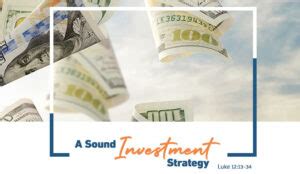Joos Ownership: A Sound Investment?
The question of whether owning Joos—assuming "Joos" refers to a specific company or asset not widely known—is a sound investment depends entirely on a thorough due diligence process. There's no simple yes or no answer without understanding the specifics of what "Joos" represents. This article will explore the key factors to consider when evaluating any investment, using the hypothetical "Joos" as a case study to illustrate the process. Remember, this information is for educational purposes only and not financial advice. Always consult with a qualified financial advisor before making any investment decisions.
Understanding the Investment
Before we can assess the soundness of a "Joos" investment, we need to understand exactly what it is. Is "Joos":
- A publicly traded company? If so, what industry is it in? What is its financial performance (revenue, profit margins, debt levels)? What is its market capitalization and price-to-earnings ratio? Analyzing publicly available financial statements and SEC filings is crucial.
- A privately held company? Accessing financial information might be more challenging. Due diligence here would involve scrutinizing private company financials, understanding its business model, and assessing its management team's expertise.
- Real estate? Location, property condition, rental income potential, and market trends are all critical factors to consider. A professional appraisal is often necessary.
- Another asset class? This could include collectibles, precious metals, or other investments. Each asset class has its own set of evaluation criteria.
Without knowing the nature of "Joos," a comprehensive evaluation is impossible. However, let's explore some general principles applicable to any investment decision.
Key Factors to Consider for Any Investment
1. What are the potential returns?
What is the expected rate of return on your investment in "Joos"? This requires forecasting future performance based on historical data, market analysis, and expert opinions. Consider both potential gains and potential losses. Higher potential returns often come with higher risk.
2. What are the risks involved?
All investments carry some level of risk. For "Joos," what are the potential downsides? Could the company face financial difficulties? Could the value of the asset decline? Understanding and quantifying these risks is vital.
3. What is your investment timeframe?
Your investment timeframe significantly impacts your risk tolerance. A shorter timeframe necessitates less risky investments, while a longer timeframe allows for greater risk-taking. How long do you plan to hold your "Joos" investment?
4. What is your risk tolerance?
How much risk are you comfortable taking? Are you a conservative investor seeking low-risk, steady returns, or a more aggressive investor willing to accept higher risk for potentially higher rewards? Your risk tolerance should align with your investment strategy.
Diversification: Spreading Your Risk
Regardless of the nature of "Joos," diversification is crucial for a sound investment strategy. Don't put all your eggs in one basket. Spread your investments across different asset classes to mitigate risk. If "Joos" represents a significant portion of your portfolio, it might be prudent to diversify further.
Due Diligence is Paramount
Before investing in anything, conduct thorough due diligence. This involves researching the investment thoroughly, analyzing its financials, and understanding the potential risks and rewards. For publicly traded companies, review financial reports and analyst ratings. For private companies or other assets, seek professional advice and conduct independent verification of claims.
Conclusion: Is "Joos" a Sound Investment?
Ultimately, whether "Joos" is a sound investment depends on the specific nature of the investment and your individual circumstances. By carefully considering the factors discussed above and undertaking thorough due diligence, you can make a more informed and responsible investment decision. Remember, professional financial advice is invaluable in navigating the complexities of the investment world.

